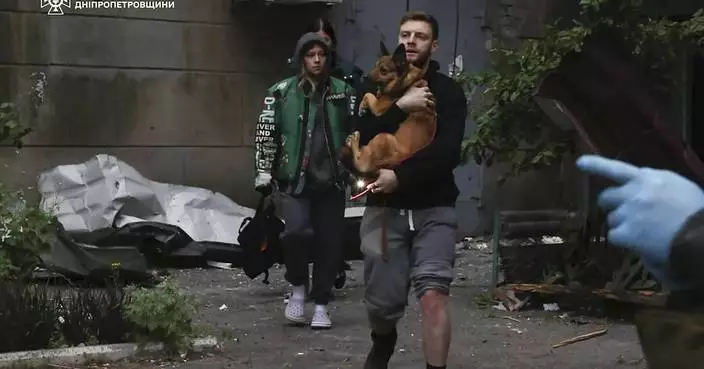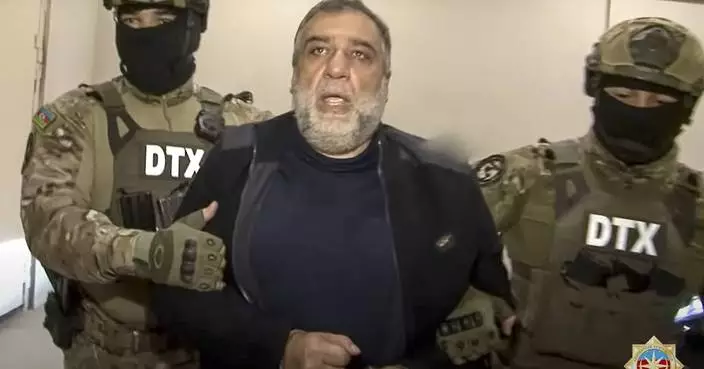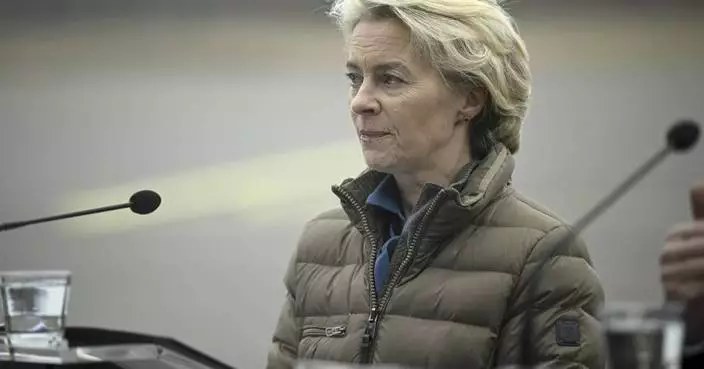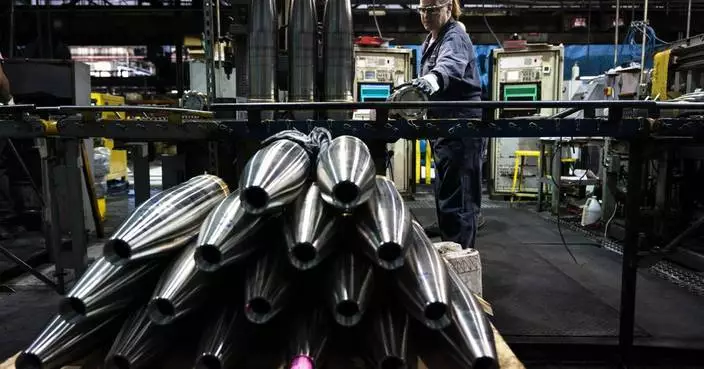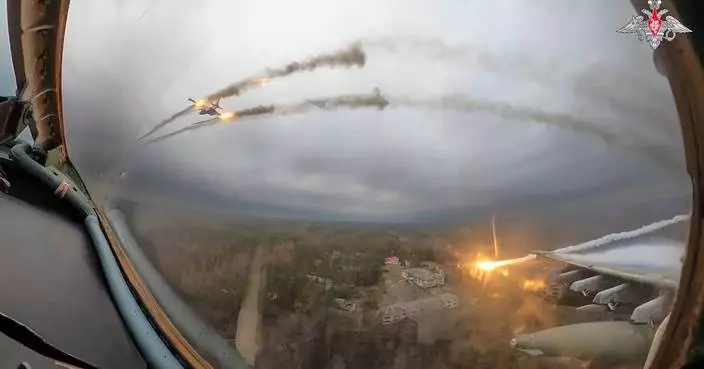Russia has approved a draft agreement with Egypt for Russian warplanes to use Egyptian military bases, according to a document released Thursday, a deal that would allow Moscow to further increase its military footprint in the Mideast.

FILE In this file photo taken on Tuesday, Aug. 12, 2014, Russian President Vladimir Putin, left, and Egyptian President Abdel-Fattah el-Sissi, visit missile cruiser Moskva ( Moscow) in the Russian Black Sea resort of Sochi, Russia. (Alexei Druzhinin, Sputnik, Kremlin Pool Photo via AP, file)
The directive, signed by Prime Minister Dmitry Medvedev and published on the official portal of legal information, endorses the draft prepared by the Russian Defense Ministry and instructs it to sign the deal with Egypt when it's ready.
The Russia-Egypt deal, which would allow each country's warplanes to use air bases of the other, is to last five years and could be extended further if agreed.
For Egypt, the deal is significant as President Abdel-Fattah el-Sissi's government has expanded military ties with Russia and signed deals to buy Russian fighter jets, helicopters and other weapons.

FILE In this file photo taken on Tuesday, Aug. 12, 2014, Russian President Vladimir Putin, left, Egyptian President Abdel-Fattah el-Sissi, right, and Russian Defense Minister Sergei Shoigu, center, visit missile cruiser Moskva ( Moscow) in the Russian Black Sea resort of Sochi, Russia. (Alexei Druzhinin, Sputnik, Kremlin Pool Photo via AP, file)
Russian Defense Minister Sergei Shoigu visited Cairo on Wednesday, noting that military cooperation between the two countries has increased recently as Egypt placed new orders for Russian weapons.
"We are pleased to note stable positive dynamics in the military-technical sphere," Shoigu was quoted as saying during meeting of an inter-government commission on military-technical cooperation.
He also offered condolences for the massacre at a village mosque in Egypt's Sinai Peninsula last week that killed 305 people during Friday prayers — the deadliest attack by Islamic extremists in Egypt's modern history.
Shoigu emphasized the need to strengthen cooperation in fighting terrorism.
"We believe that it's necessary to fight this evil together using all accessible means," he said.
The local affiliate of the extremist Islamic State group has not formally claimed responsibility for the mosque attack, though the gunmen that mowed down the worshippers carried the black banner of the militant group. The IS affiliate has claimed responsibility for the October 2015 downing over Sinai of a Russian passenger jet that killed all 224 people on board, mostly Russian tourists.
IS said it blew up the plane with a bomb smuggled on board, a claim confirmed by Russian investigators. The bombing prompted Russia to cut commercial flights with Egypt, a heavy blow that decimated the country's vital tourism industry.
Moscow and Cairo have held talks on boosting airport security and resuming the air link, but no agreement has been reached so far.
Egypt was Moscow's closest Arab ally in the 1950s and 1960s, when nationalist leader Gamal Abdel-Nasser turned away from the United States and secured Soviet backing. Nasser's successor, Anwar Sadat, broke ties with Moscow and evicted Soviet military advisers.
Under el-Sissi, who developed friendly ties with Russian President Vladimir Putin, Egypt has expanded economic ties with Russia and shown a renewed interest in Russian arms.
Russia has raised its profile in the Middle East region with a military campaign in Syria that has turned the course of war in Syrian President Bashar Assad's favor. Russia has an air base and a navy supply facility in Syria, which it plans to expand.
El-Sissi has struggled to subdue the Islamic insurgency in Sinai. On Wednesday, he gave his security forces a three-month deadline to restore "security and stability" in the troubled northern part of the peninsula and authorized his new chief of staff to use "all brute force" against the militants.
HELENA, Mont. (AP) — BNSF Railway attorneys are expected to argue before jurors Friday that the railroad should not be held liable for the lung cancer deaths of two former residents of an asbestos-contaminated Montana town, one of the deadliest sites in the federal Superfund pollution program.
Attorneys for the company say the corporate predecessors of the railroad, owned by Warren Buffett’s Berkshire Hathaway conglomerate, didn't know the vermiculite they hauled over decades from a nearby mine was filled with hazardous microscopic asbestos fibers.
The case in federal civil court over the two deaths is the first of numerous lawsuits against the Texas-based railroad corporation to reach trial over its past operations in Libby, Montana. Current and former residents of the small town near the U.S.-Canada border want BNSF held accountable for its alleged role in asbestos exposure that health officials say has killed several hundred people and sickened thousands.
Looming over the proceedings is W.R. Grace & Co., a chemical company that operated a mountaintop vermiculite mine 7 miles (11 kilometers) outside of Libby until it was closed 1990. The Maryland-based company played a central role in Libby's tragedy and has paid significant settlements to victims.
U.S. District Court Judge Brian Morris has referred to the the chemical company as “the elephant in the room” in the BNSF trial. He reminded jurors several times that the case was about the railroad's conduct, not W.R. Grace's separate liability.
Federal prosecutors in 2005 indicted W. R. Grace and executives from the company on criminal charges over the contamination in Libby. A jury acquitted them following a 2009 trial.
How much W.R. Grace revealed about the asbestos dangers to Texas-based BNSF and its corporate predecessors has been sharply disputed.
The railroad said it was obliged under law to ship the vermiculite, which was used in insulation and for other commercial purposes, and that W.R. Grace employees had concealed the health hazards from the railroad.
Former railroad workers said during testimony and in depositions that they knew nothing about the risks of asbestos. They said Grace employees were responsible for loading the hopper cars, plugging the holes of any cars leaking vermiculite and occasionally cleaned up material that spilled in the rail yard.
Former rail yard worker John Swing said in previously recorded testimony that he didn’t know asbestos was an issue in Libby until a 1999 newspaper story reporting deaths and illnesses among mine workers and their families.
Swing also said he didn’t think the rail yard was dusty. His testimony was at odds with people who grew up in Libby and recall dust getting kicked up whenever the wind blew or a train rolled through the yard.
The estates of the two deceased plaintiffs have argued that the W.R. Grace’s actions don’t absolve BNSF of its responsibility for knowingly exposing people to asbestos at its railyard in the heart of the community.
Their attorneys said BNSF should have known about the dangers because Grace put signs on rail cars carrying vermiculite warning of potential health risks. They showed jurors an image of a warning label allegedly attached to rail cars in the late 1970s that advised against inhaling the asbestos dust because it could cause bodily harm.
BNSF higher-ups also should have been aware of the dangers because they attended conferences that discussed dust diseases like asbestosis in the 1930s, attorneys for the plaintiffs argued.
Family members of Tom Wells and Joyce Walder testified that their lives ended soon after they were diagnosed with mesothelioma. The families said the dust blowing from the rail yard sickened and killed them.
In a March 2020 video of Wells played for jurors and recorded the day before he died, he lay in a home hospital bed, struggling to breathe.
“I’ve been placed in a horrible spot here, and the best chance I see at release — relief for everybody — is to just get it over with,” he said. “It’s just not something I want to try and play hero through because I don’t think that there’s a miracle waiting.”
The Environmental Protection Agency descended on Libby after the 1999 news reports. In 2009 it declared in Libby the nation’s first ever public health emergency under the federal Superfund cleanup program.
The pollution in Libby has been cleaned up, largely at public expense. Yet the long timeframe over which asbestos-related diseases develop means people previously exposed are likely to continue getting sick for years to come, health officials say.
Judge Morris on Thursday rejected the railroad’s requests for verdicts in its favor before the case reached the jury.
BNSF attorneys asserted it was not liable in Libby because the railroad's duties as a “common carrier” of goods shielded it from some legal claims.
But Morris said the plaintiffs offered sufficient evidence that the railroad’s actions fell outside those legal protections because it conducted “abnormally dangerous activity” by maintaining a railyard with asbestos that could go airborne and spread into Libby.
The judge cited last year’s derailment and fire of a Norfolk Southern train carrying chemicals through East Palestine, Ohio. A court found that some of the railroad's actions in East Palestine weren't shielded by the law because it voluntarily blew open cars and burned the chemicals after the derailment so that it could resume running trains.
Morris said BNSF's actions likewise were not shielded because it was not bound by public duties to maintain the rail yard as it did.
Brown reported from Billings, Montana.
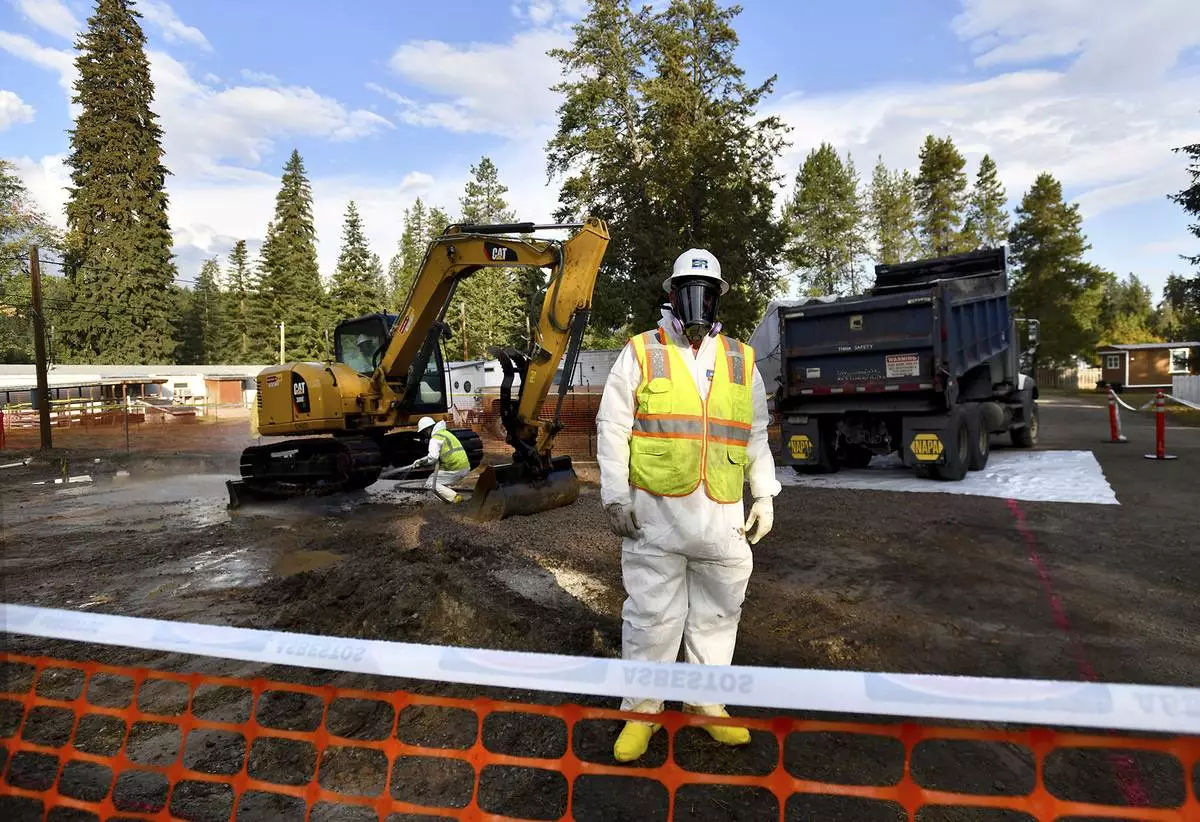
FILE - Environmental cleanup specialists work at one of the last remaining residential asbestos cleanup sites in Libby, Montana, in mid-September. BNSF Railway attorneys are expected to argue before jurors Friday, April 19, 2024, that the railroad should not be held liable for the lung cancer deaths of two former residents of the asbestos-contaminated Montana town, one of the deadliest sites in the federal Superfund pollution program. (Kurt Wilson/The Missoulian via AP, File)

FILE - Dr. Lee Morissette shows an image of lungs damaged by asbestos exposure, at the Center for Asbestos Related Disease, Thursday, April 4, 2024, in Libby, Mont. BNSF Railway attorneys are expected to argue before jurors Friday, April 19, 2024, that the railroad should not be held liable for the lung cancer deaths of two former residents of the asbestos-contaminated Montana town, one of the deadliest sites in the federal Superfund pollution program. (AP Photo/Matthew Brown, File)
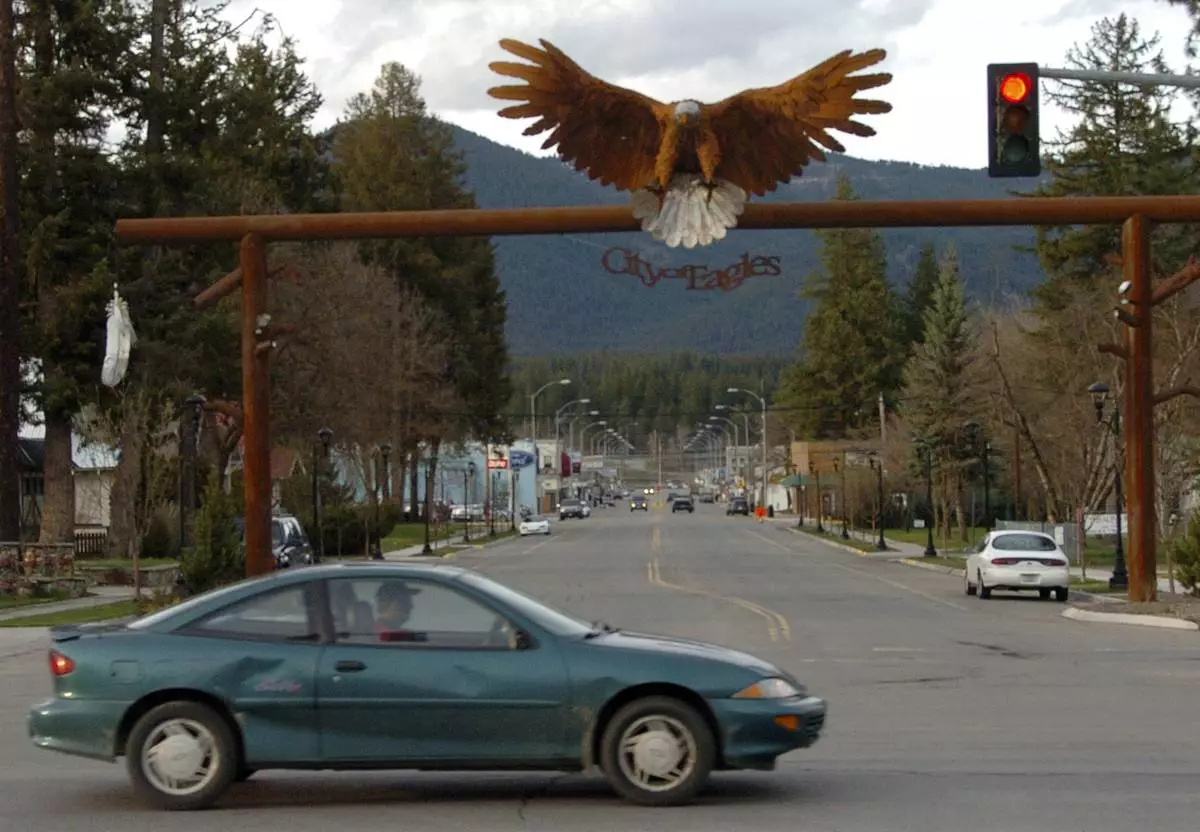
FILE - In this April 27, 2011, file photo, the entrance to downtown Libby, Mont., is seen. BNSF Railway attorneys are expected to argue before jurors Friday, April 19, 2024, that the railroad should not be held liable for the lung cancer deaths of two former residents of the asbestos-contaminated Montana town, one of the deadliest sites in the federal Superfund pollution program. (AP Photo/Matthew Brown, File)









